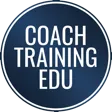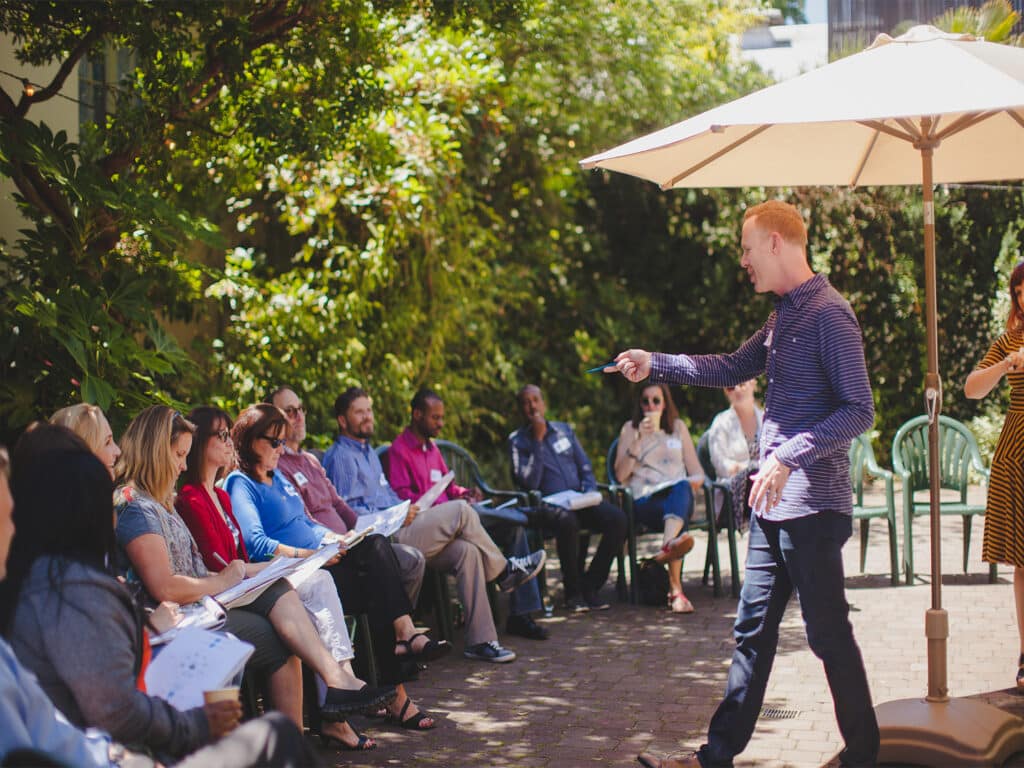
What Can You Expect from Life Coach Training?
With roots in Sports Psychology, coaching has been around for hundreds of years. However, life coaching started to grow as a profession in the early 1990s with Thomas Leonard. He was a Financial Planner who noticed that his clients wanted more than just financial advice. They wanted insights into how they could intentionally live their lives in a way that set them up for success.
He began developing techniques and strategies to guide people as they planned their lives. Leonard started sharing his insights with others, which led to the beginning of life coach training.
The life coaching industry has evolved immensely since then, with organizations like the International Coach Federation setting standards and life coaching schools developing curriculums.
Even with these regulations in place, knowing what to expect from life coach training can feel confusing. Coaching isn’t something we learn about in high school, so what is it like to learn about becoming a life coach?
Whether you’ve decided to pursue life coaching as a career path or you’re just learning about what it means to be a coach, here’s what you can expect from a life coach training program.
Develop the Skill Set to Become a Successful Life Coach
Coaching requires developing a specific set of skills based on the seven essential coach qualities to set you up for success. Training programs have entire classes dedicated to diving into these skills and teaching you how to embody these qualities. The seven essential qualities are: Professional, Empathetic, Empowering, Curious, Courageous, Confident, and Inspiring.
Professional
A coach-client relationship is a professional partnership in which the coach guides the client on the journey to becoming the best version of themselves. Coaching sessions can be intimate as the powerful questions asked of the client require vulnerability and honesty to make sustainable transformation.
Your client will be sharing a lot of themselves with you, and it’s important to keep these conversations confidential.
Professionalism includes establishing clear guidelines with your client so they know what to expect from each session. These guidelines will outline expectations, goals, and resources so there’s no confusion about what the relationship will look like. Despite the intimate nature of coaching sessions, it’s the coach’s duty to maintain professionalism.
Empathetic
At its core, the coach needs to exhibit and embody a high level of empathy for coaching to function properly. Empathy involves asking questions from the client’s perspective, noticing and addressing shifts in the client’s energy, and actively listening. Empathy is a lot more than just understanding where the person is coming from. Consider this question:
- “What do you hope to learn about yourself with this experience?”
When was the last time someone asked you a question like that? Think about the power behind that question and how it can affect your perspective on your life.
Empowering
As a coach, you are empowering your client to take control of their lives by creating a space of exploration and discovery. You’re encouraging the client to make their own decisions and take the steps necessary to make the change they want to see.
Curious
You’ll develop the skill of curiosity. You’ll learn how to ask the right questions to understand what it’s like to be in your client’s life, elicit insights, and develop new ideas. You’ll learn to look at every question as an opportunity for growth for both you and your client.
Courageous
To make a real impact in your client’s life, you need to be bold. Ask the hard questions; they’re usually the ones that make the biggest difference. You’ll learn to let go of the attachment to being agreeable or always being right. It takes courage to try something out knowing you might be wrong. You’ll adopt the mindset of serving your client, not your ego.
Confident
Life Coach Training will build up your confidence in your coaching skills because you’ll be immersed in an interactive coach training experience for six months. You’ll spend time practicing and learning from world-class coach trainers who are dedicated to your success. The goal is to become confident in all aspects of the coaching relationship.
Trust yourself, trust your client, and trust the process.
Inspiring
You can expect to inspire. You’ll inspire your client to make bold choices and take meaningful action in their lives. Inspiration comes from embodying all the previous qualities mentioned. Together they make for a professional, effective, and inspiring coach.
Foundation in Positive Psychology
You’ll learn life coaching tools and theories rooted in positive psychology, neuroscience, and sports psychology. These concepts focus on the things within us that are going well, that make us who we are and help us to envision our best selves.
It is these perspectives that provide the backbone of life coaching, allowing coaches to derive activities and questions that help clients build self-awareness. Training programs have this foundation so you can understand why coaching works and how the brain processes information to enable human flourishing.
Learn the Tools to Prompt Transformation Within Clients
There are specific tools in coaching that will guide your client to transformation. You can expect to practice using these tools to help meet your client’s goals. A particularly popular tool, for example, is Future Self.
Future Self is a tool that looks at a designed, positive, future-oriented perspective and helps you envision a future filled with all of the achievements you’ve ever wished for yourself.
In this activity, your client uses their imagination to picture themselves at some point in the future. They decide the timeline; it could be a few weeks, 3 months, or even a year. The idea is for them to visualize, in detail, what their ideal Future Self would look like: physically, emotionally, and mentally.
This exercise gives clients the space to look at what they value, how they embody those values, and what actions they need to take to get to this idealized version of themselves.
We threw a Future Self Party to get coaches in our community into that headspace. Check it out!
Build a Network of Like-minded Change-makers
In your training program, you’ll be in a cohort of individuals on the same journey as you. In the process of learning how to become a coach, you’re also coached. You and your cohort will be vulnerable together, grow together, and cultivate a community.
Apart from your cohort, you’ll have access to a community of graduates and established coaches to connect with. The best part of having this network of people is that they’re all in this field with the same goals of making the world a better place with coaching concepts. You’ll find yourself inspired and constantly learning from your network of peers.
You might not recognize yourself at the end of your training program. You’ll have grown personally and professionally in ways you didn’t know possible. You can expect greatness from your life coach training.
If you’re still curious about what it’ll be like, you can experience the magic of coaching firsthand in our free, Live Sample Training Class. Register to get a feel for the journey on which you’re about to embark.




